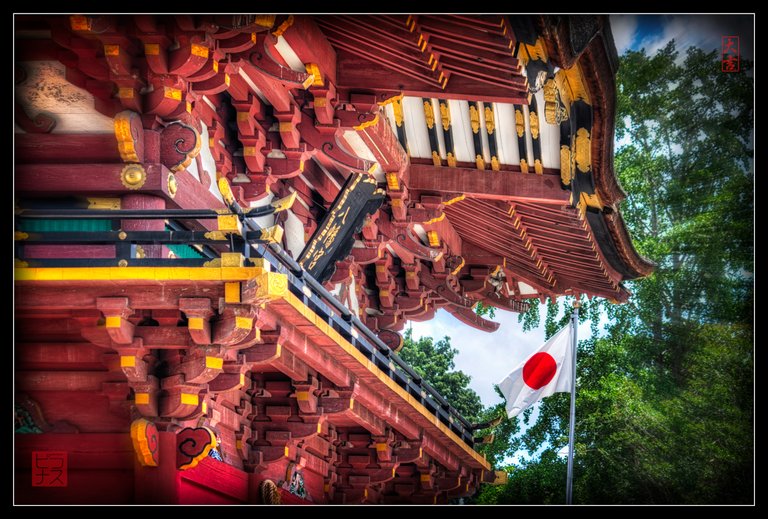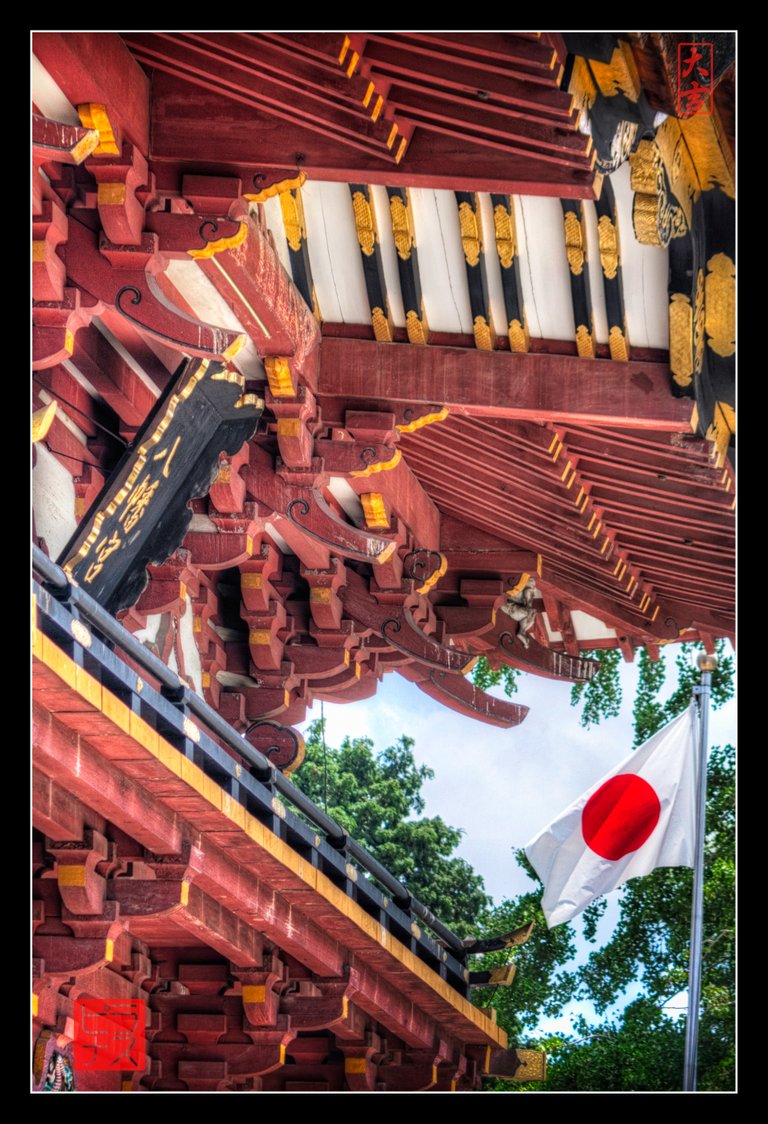The side of the main rōmon gate at Iga Hachiman Shrine, with the rising sun flag in the background.

This is a closeup of the rōmon (楼門), the tower gate marking entrance to the inner shrine, at Iga Hachiman Shrine (伊賀八幡宮) in Okazaki. The Japanese national flag in the background.
I love the detailed woodwork on the gate itself. They hire special carpenters to do that. There is not a single nail (or screw) anywhere. Everything is joined by complicated joints cut into the wood. Those of you who do woodworking know how complicated these joints are to make. Interestingly, because most of these older buildings are made using the traditional measurements of Japan, these traditional carpenters and woodworkers are usually experts in the system.

You'll find many things colored red in Japan, from torii gates, to buildings to small bibs and caps many of the various religious statues wear. Why red?
According to ancient belief, red is said to be the color for expelling demons and illness. This might be connected with early spirit quelling rituals centered around the fire god. The red paint on many religious buildings marks them as places safe from evil—both the spirit kind and the disease kind.
❦
 |
David LaSpina is an American photographer and translator lost in Japan, trying to capture the beauty of this country one photo at a time and searching for the perfect haiku. |
If this blog post has entertained or helped you, please follow/upvote/reblog. If you want to further support my writing, donations are welcome.
Beautiful and powerful photos! I like the Japanese restoration techniques. I like to watch restoration documentaries sometimes. Yes, the Japanese "Aka" is very beautiful and it's everywhere.
So do I. Actually I like all documentaries on the traditional crafts and related things. They are always very interesting